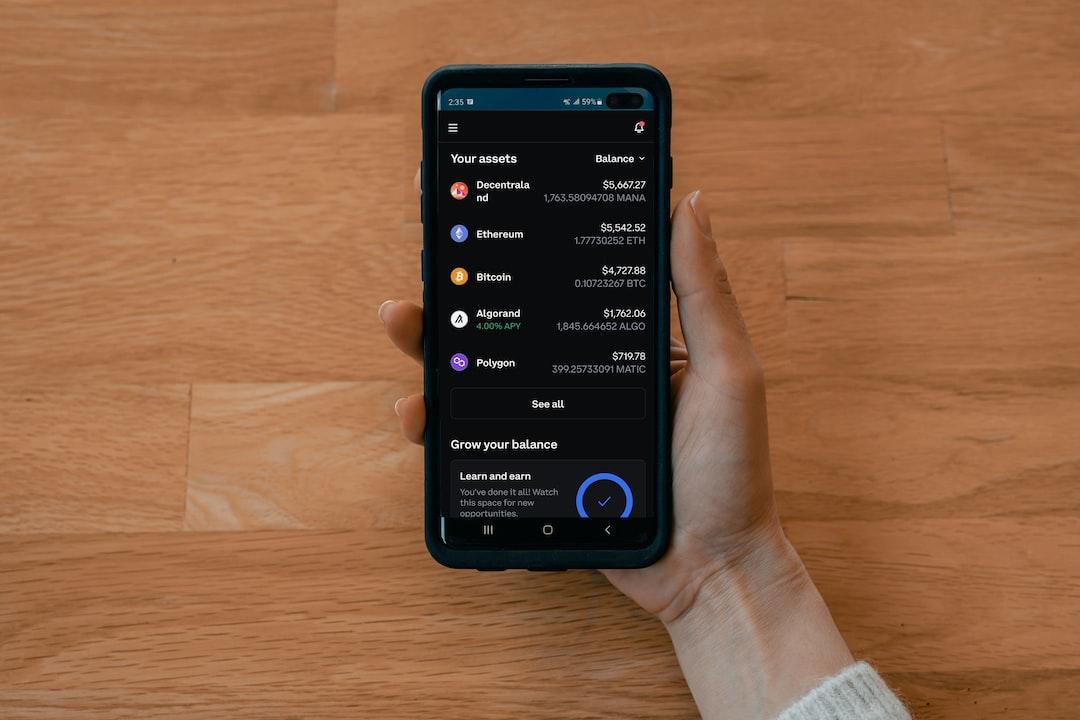Coin Center
Yesterday’s blog post pointed out that certain provisions of the U.S. Infrastructure Act have now come into effect, including the requirement for individuals who receive cryptocurrencies valued at $10,000 or more in trade or business to report the names, addresses, social security numbers, and transaction details of both parties to the Internal Revenue Service (IRS).
IRS: Details of Cryptocurrency Transactions Worth More Than $10,000 Must Be Reported
Jerry Brito Raises Multiple Questions: I Don’t Know How to Comply
Unclear Rules and Rushing to Collect Taxes?
Cryptocurrency and blockchain think tank Coin Center revealed that the Infrastructure Investment and Jobs Act (IIJA), signed into law by President Biden in November 2021, includes several provisions amending the tax code, requiring individuals who engage in cryptocurrency transactions or business worth more than $10,000 to report to the IRS.


H.R.3684 Infrastructure Investment and Jobs Act (IIJA)
It is reported that the details of the report must include the names, addresses, social security numbers, transaction amounts, dates, and nature of the sender and receiver; and if the party fails to submit the report within 15 days of receiving the transaction, they may face criminal charges.
Advertisement – Please scroll down for the rest of the article.




The law came into effect on January 1, 2024, and will be automatically enforced without any regulatory action required by relevant agencies, and all U.S. citizens must comply.
Jerry Brito, the executive director of Coin Center, expressed concerns, pointing out that many specific provisions of the law have yet to be clearly defined, posing many unresolved potential issues. Without more detailed guidance from the IRS, cryptocurrency users will find it difficult to comply with reporting requirements.
Specifically, Jerry raised several questions through the following scenarios, questioning the applicability of the new regulations:
When miners or network validators receive block rewards worth more than $10,000, who should the sender write the name or address of?
If a user uses the exchange function (Swap) of a decentralized exchange and receives $10,000, does this need to be reported?
Is it necessary to report when sending cryptocurrencies from a centralized exchange to a wallet?
If a user receives a cryptocurrency airdrop through protocol interaction but does not know if it is worth more than $10,000, who should they ask?
Does the IRS have a standard to measure whether the value of a cryptocurrency exceeds $10,000?
In addition, he also mentioned that the law requires reports to be made in the form of “Form 8300” as specified by the Treasury Department, but this form is used to report “cash income,” and the relevant agencies have not yet explained how to report cryptocurrency income through this form.
At the same time, the form specifies that it can only be sent to the Financial Crimes Enforcement Network (FinCEN) and the IRS, but the former does not have the authority to collect reports on cryptocurrency transactions.
Jerry stated:
So far, the Treasury Department’s guidance is not clear, and I can’t find clear rules to follow.
In conclusion, Jerry also emphasized that he will continue to take a firm stance in litigation with the Treasury Department to clarify how the law should be complied with as soon as possible.
In fact, the law is still unclear in many definitions, for example, Coin Center mentioned above that the law applies to any “entity or individual.” However, Cointelegraph only mentioned “cryptocurrency exchanges, brokers, custodians,” and other entities that need to report transactions above a certain amount, showing an obvious discrepancy.
Previously, at the same time the law was signed into effect, many legislators suggested that additional regulations be enacted to make the reporting requirements more comprehensive, and believed that it would be very difficult or nearly impossible to achieve completeness through the collection of data by brokers.
In August of this year, the IRS also planned to introduce new tax regulations for the cryptocurrency field, which will be launched in 2026 and will include tracking user gains and losses and assisting in submitting tax information for cryptocurrency wallets, payment processors, centralized exchanges (CEX), decentralized exchanges (DEX), and other trading brokers, which will pose a serious threat to the decentralized ecosystem.
Coin Center
Jerry Brito
Cryptocurrency Taxation
Internal Revenue Service (IRS)
U.S. Infrastructure Act


Further Reading
Cryptocurrency Advocacy Group Coin Center Sues U.S. Treasury Department! Claims Infrastructure Bill is Unconstitutional, Persecutes Privacy and Association Rights
Why Do Cryptocurrency Exchanges Continue Their Operations in Russia? Is This Reasonable and What Criticisms Do They Face?

